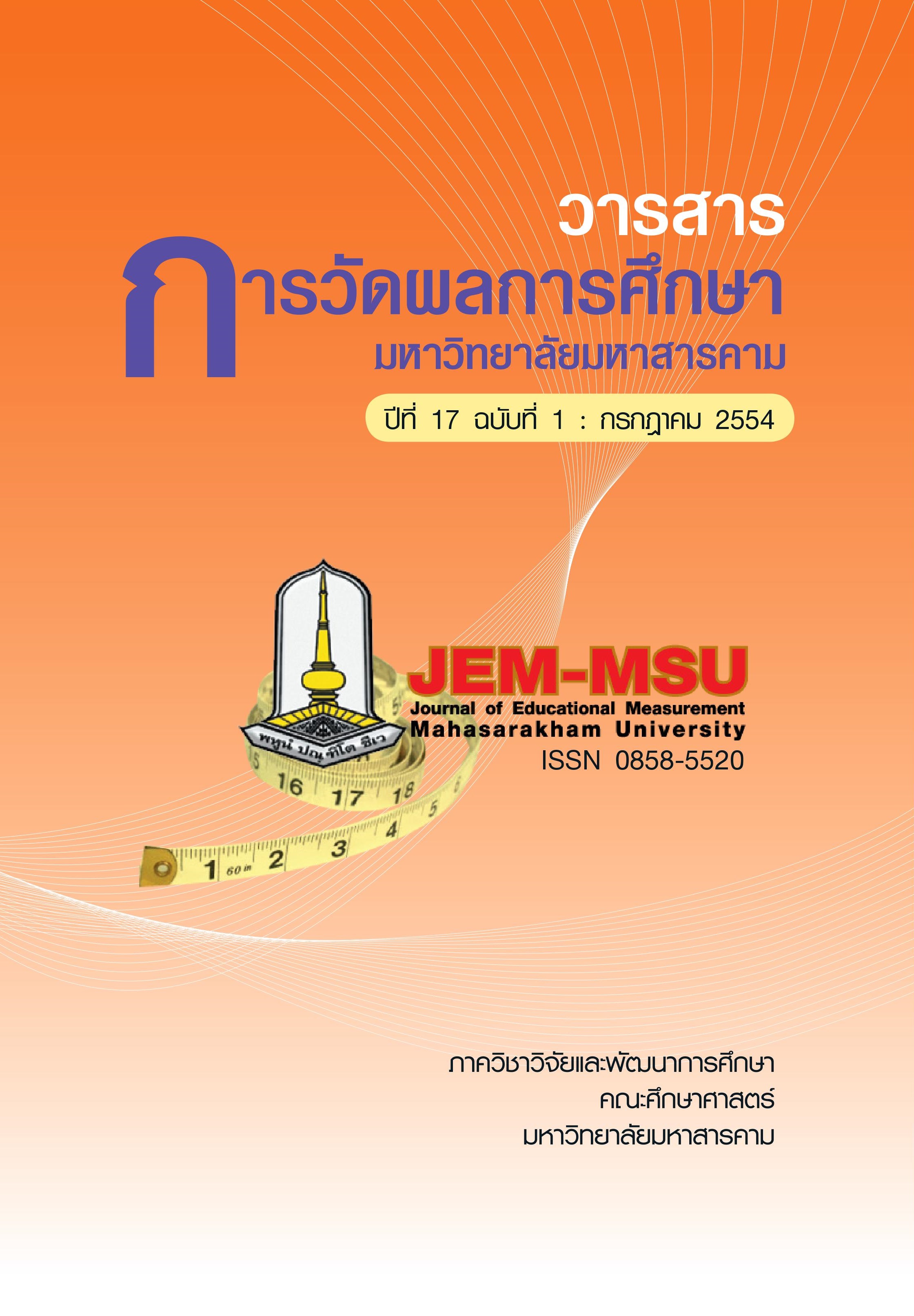Participatory Research for Developing an Educational Institution Curriculum in an Additional Course Entitled Mat Mi Pattern Cloth Design as Local Indegernous Knowledge of Thai-So at Ban Phon Chan, Changwat Nakhon Phanom
Main Article Content
Abstract
Educational institution curricula in additional courses are the curricular developed from
local needs or what are problems. They are in congruence with social and local conditions
and they cover all learning standards conditions and the core curricula. Each curriculum can
be indigenous knowledge conditions ; and students’ desirable characteristics based on the
principle of organization of learner-centered learning. The curricula provide opportunities for
students, community and society to participate in determining and developing the sequence
of stages of experience mass which can generate sustainable learning. The purposes of this
study were to 1) examine the needs for developing an educational institution curriculum in
an additional course, 2) develop an educational institution curriculum in the additional
course, 3) try out the educational institution curriculum in the additional course, and
4) evaluate the tryout of the educational institution curriculum in the additional course.
The focus group consisted of 30 Matthayomsueksa 2/2 (grade 8) students at Ban Phon Chan,
Amphoe Phon Sawan under the Offce of Nakhon Phanom Educational Service Area Zone
2, obtained using the cluster random sampling technique. The instruments used for collecting
data were an educational institution curriculum in the additional course entitled Mat Mi
Pattern Cloth Design as Local Indigenous Knowledge of Thai-So at Ban Phon Chan, a
questionnaire for students, plans for organization of learning, an achievement test, an
observation from on practice skills, an observation form on desirable characteristics, an
informal interview form, and a questionnaire on satisfaction with learning. The collected
data were analyzed using mean, standard deviation, percentage, and t-test (dependent
sample). The qualitative data were analyzed using content analysis. Inductive conclusions
were made with descriptive writing. The study fndings revealed that the teachers, parents,
students, and community showed their needs for developing the educational institution
curriculum in the additional course entitled Mat Mi Pattern Cloth Design as Local Indigenous
Knowledge of Thai-So at Ban Phon Chan at a high level. The developed curriculum showed
congruence and appropriateness comprising introduction, vision, goals, students’ major
competency, desirable characteristics, learning standards, learning essences, course
description, learning outcomes, learning units learning activities, learning media, and
measurement and evaluation. These things were in congruence with the students’ and
local needs. The community participated in development, could organize learning essences
according to their needs, aptitudes, and interests. The outcomes of trying out the curriculum
showed that the students had higher learning achievement than before learning at the .05
level of signifcance, with practice skills at 84.75 percent and desirable characteristics at 82.97
percent. The teachers, parents, and students showed their satisfaction with learning using the
developed curriculum at the highest level
In conclusion, this developed educational institution curriculum was appropriately
effcient and effective, and was in congruence with the needs of learners and the community.
The teachers, students, and parents showed their satisfaction at the highest level. Therefore,
this curriculum could be used as a guideline for constructing other educational institution
curricula in other course and at other schools.
Article Details
The content and information contained in the published article in the Journal of Educational Measurement Mahasarakham University represent the opinions and responsibilities of the authors directly. The editorial board of the journal is not necessarily in agreement with or responsible for any of the content.
The articles, data, content, images, etc. that have been published in the Journal of Educational Measurement Mahasarakham University are copyrighted by the journal. If any individual or organization wishes to reproduce or perform any actions involving the entirety or any part of the content, they must obtain written permission from the Journal of Educational Measurement Mahasarakham University.


